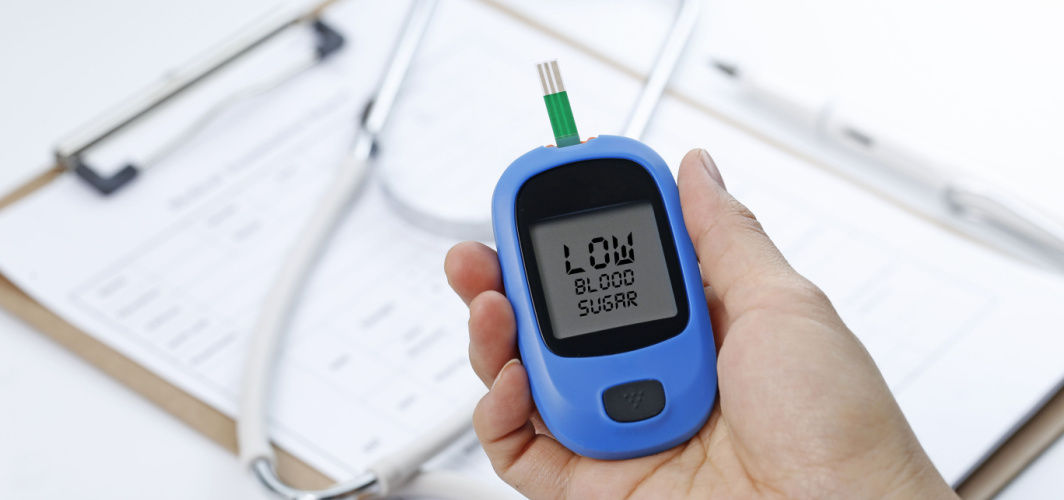Diabetes Management
Understanding the Various Types of Diabetes
2 min read
By Apollo 24|7, Published on - 27 March 2024
Share this article
0
0 like
.jpg?tr=q-80)
Diabetes is a prevalent health issue in India, affecting millions of lives. It is a complex condition that is categorized into different types, each with unique characteristics and management strategies. This blog aims to help you understand these different types of diabetes better.
Main Types of Diabetes
Primarily, diabetes is classified into three main types:
1) Type 1 Diabetes: This is an autoimmune condition in which the body's immune system attacks the insulin-producing cells in the pancreas, leading to insulin deficiency. People with this type of diabetes are required to take Insulin injections to manage their diabetes.
2) Type 2 Diabetes: The most common type occurs when the body becomes resistant to insulin or doesn’t use insulin well and can’t keep blood sugar at normal levels. About 90-95% of people with diabetes have type 2. It develops over many years and is usually diagnosed in adults. It can often be managed with lifestyle changes and medication.
3) Gestational Diabetes: This is a type of diabetes in pregnant women who have never had diabetes previously, it usually goes away after your baby is born. However, it increases your risk for type 2 diabetes later in life.
4) Prediabetes: With prediabetes, blood sugar levels are higher than normal, but not high enough for a type 2 diabetes diagnosis. Prediabetes raises your risk for type 2 diabetes, heart disease, and stroke. But there’s good news. If you have prediabetes, lifestyle changes and healthy habits around diet and activity can help to reverse it.
Managing Diabetes Effectively
Understanding the type of diabetes you have is crucial for your doctor to develop an effective management plan. Regular blood sugar monitoring, a healthy diet, regular exercise, and sticking to your medication schedule are fundamental aspects of diabetes management. Your doctor may also recommend using a diabetes management application to track and analyze your diabetes journey.
Importance of Regular Health Check-ups
Regular health check-ups are essential regardless of the type of diabetes. They help in the early detection of any complications and timely intervention. Regular eye, kidney, and foot examinations are crucial, as diabetes can lead to problems in these areas.
Understanding your type of diabetes and managing it is key to leading a healthy life. Regular monitoring of your blood sugar levels, maintaining a balanced diet and active lifestyle, and consistent medical check-ups can help you manage this condition effectively. Remember, every step towards better health counts, and your efforts can make a significant difference in managing diabetes.
Diabetes Management
Consult Top Diabetologists
View AllLeave Comment
Recommended for you

Diabetes Management
Hypoglycaemia: Know What Happens When Your Blood Sugar Drops!
Hypoglycemia, or low blood sugar, presents various symptoms, from mild shakiness to severe confusion. It often occurs in diabetes due to an imbalance in insulin, food intake, and physical activity. Prompt recognition and management are crucial to prevent complications, emphasizing the importance of understanding and addressing hypoglycemia in diabetes.

Diabetes Management
Diabetes and Skin problems: Keep Them at Bay
People with diabetes may experience various skin problems, like darkening of the skin (acanthosis nigricans) in areas like the neck, armpits, and groin; painless patches on the skin (diabetic dermopathy) typically found on the legs; and stiffening of the digits (digital sclerosis) affecting the fingers, toes, and hands. To keep these skin problems at bay, maintain good blood sugar control, practice proper hygiene, moisturize skin regularly, avoid scratching or picking at skin, wear breathable fabrics, and protect skin from excessive sun exposure.
.jpg?tr=q-80)
Diabetes Management
What Happens if a Diabetic Gets Stung by a Bee?
Bee stings may present significant health complications for individuals with diabetes. Understanding these risks and knowing how to effectively manage a sting could make a huge difference. Consider enrolling in a support programme like Apollo Super 6 to help navigate your diabetes journey.
Subscribe
Sign up for our free Health Library Daily Newsletter
Get doctor-approved health tips, news, and more.
Visual Stories

8 Fruits That are Incredibly Healthy for Diabetes
Tap to continue exploring
Recommended for you

Diabetes Management
Hypoglycaemia: Know What Happens When Your Blood Sugar Drops!
Hypoglycemia, or low blood sugar, presents various symptoms, from mild shakiness to severe confusion. It often occurs in diabetes due to an imbalance in insulin, food intake, and physical activity. Prompt recognition and management are crucial to prevent complications, emphasizing the importance of understanding and addressing hypoglycemia in diabetes.

Diabetes Management
Diabetes and Skin problems: Keep Them at Bay
People with diabetes may experience various skin problems, like darkening of the skin (acanthosis nigricans) in areas like the neck, armpits, and groin; painless patches on the skin (diabetic dermopathy) typically found on the legs; and stiffening of the digits (digital sclerosis) affecting the fingers, toes, and hands. To keep these skin problems at bay, maintain good blood sugar control, practice proper hygiene, moisturize skin regularly, avoid scratching or picking at skin, wear breathable fabrics, and protect skin from excessive sun exposure.
.jpg?tr=q-80)
Diabetes Management
What Happens if a Diabetic Gets Stung by a Bee?
Bee stings may present significant health complications for individuals with diabetes. Understanding these risks and knowing how to effectively manage a sting could make a huge difference. Consider enrolling in a support programme like Apollo Super 6 to help navigate your diabetes journey.


